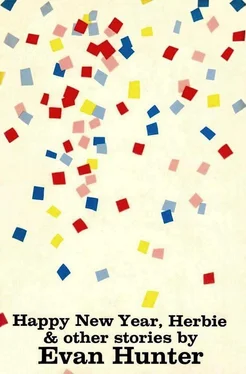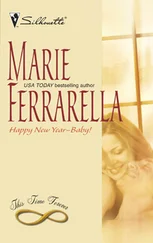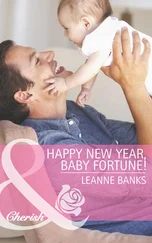“I will accept a reasonable offer, sir,” Barker persisted.
“I told you I...”
“For two coins then, sir? Would you make an offer for two of the coins?”
“If I don’t know what one is worth, how can I...”
“Three, sir? Will you barter for three?”
He looked into the old man’s eyes, and he saw what was there, and the old man’s meaning cracked sharply into his mind, and he felt a sudden chill.
“A dozen coins, sir?” Barker said, and he leaned closer, and his eyes turned to Diane, coveted her in one swift glance, and somehow assured her, assured her of something certain that was about to happen, and Michael realized with a shock that he wanted those coins, he desired those coins in the wooden chest, he wanted them desperately, and it was then that his eyes narrowed and the dust in the shop took on a new and different smell.
“Two dozen coins, sir? I am willing to trade. I am willing to barter.”
Michael held the single doubloon in his hand and he looked at the glittering heap of coins and felt suddenly weak. He began shaking his head, the ticking of the clocks loud in his ears, the dust motes recklessly climbing the golden shafts, Diane blond and smiling her cold fixed evil smile, the old man leaning forward and wheezing heavily, anxiously awaiting his answer, evil, and the stench of evil in his own nostrils, suffocating him. He reached for Diane’s arm blindly, and he dropped the doubloon onto the gleaming pile of coins and shoved past the old man. Barker reached out as if to stop them, and his thick fingers traveled the length of Diane’s naked arm caressingly as she rushed past, recoiling from his touch, and went swiftly down the steps into the street, Michael following behind her, the expensive camera swinging from his neck.
They stopped on the sidewalk. The sun was still intense. Behind them the steps rose to the ugly pink wall and the beckoning red arrow. His hand shook as he fumbled for the cigarettes in the pocket of his white shirt.
“He recognized us,” Diane whispered, and suddenly she began to shiver.
“Yes,” Michael answered quickly, taking her elbow. His eyes would not meet hers. “He knew we were tourists.”
On the Sidewalk, Bleeding
The boy lay bleeding in the rain.
He was sixteen years old, and he wore a bright purple silk jacket, and the lettering across the back of the jacket read THE ROYALS. The boy’s name was Andy, and the name was delicately scripted in black thread on the front of the jacket, just over the heart. Andy.
He had been stabbed ten minutes ago. The knife had entered just below his rib cage and had been drawn across his body violently, tearing a wide gap in his flesh. He lay on the sidewalk with the March rain drilling his jacket and drilling his body and washing away the blood that poured from his open wound. He had known excruciating pain when the knife ripped §cross his body, and then sudden comparative relief when the blade was pulled away. He had heard the voice saying, “That’s for you, Royal!”, and then the sound of footsteps hurrying into the rain, and then he had fallen to the sidewalk, clutching his stomach, trying to stop the flow of blood.
He tried to yell for help, but he had no voice. He did not know why his voice had deserted him, or why the rain had become so suddenly fierce, or why there was an open hole in his body from which his life ran redly, steadily. It was 11:30 P.M., but he did not know the time.
There was another thing he did not know.
He did not know he was dying. He lay on the sidewalk, bleeding, and he thought only, That was a fierce rumble, they got me good that time, but he did not know he was dying. He would have been frightened had he known. In his ignorance, he lay bleeding and wishing he could cry out for help, but there was no voice in his throat. There was only the bubbling of blood from between his lips whenever he opened his mouth to speak. He lay silent in his pain, waiting, waiting for someone to find him.
He could hear the sound of automobile tires hushed on the muzzle of rain-swept streets, far away at the other end of the long alley. He lay with his face pressed to the sidewalk, and he could see the splash of neon far away at the other end of the alley, tinting the pavement red and green, slickly brilliant in the rain.
He wondered if Laura would be angry.
He had left the jump to get a package of cigarettes. He had told her he would be back in a few minutes, and then he had gone downstairs and found the candy store closed. He knew that Alfredo’s on the next block would be open until at least two, and he had started through the alley, and that was when he’d been ambushed. He could hear the faint sound of music now, coming from a long, long way off, and he wondered if Laura was dancing, wondered if she had missed him yet. Maybe she thought he wasn’t coming back. Maybe she thought he’d cut out for good. Maybe she’d already left the jump and gone home. He thought of her face, the brown eyes and the jet-black hair, and thinking of her he forgot his pain a little, forgot that blood was rushing from his body. Someday he would marry Laura. Someday he would marry her, and they would have a lot of kids, and then they would get out of the neighborhood. They would move to a clean project in the Bronx, or maybe they would move to Staten Island. When they were married, when they had kids...
He heard footsteps at the other end of the alley, and he lifted his cheek from the sidewalk and looked into the darkness and tried to cry out, but again there was only a soft hissing bubble of blood on his mouth.
The man came down the alley. He had not seen Andy yet. He walked, and then stopped to lean against the brick of the building, and then walked again. He saw Andy then and came toward him, and he stood over him for a long time, the minutes ticking, ticking, watching him and not speaking.
Then he said, “What’s a matter, buddy?”
Andy could not speak, and he could barely move. He lifted his face slightly and looked up at the man, and in the rain-swept alley he smelled the sickening odor of alcohol and realized the man was drunk. He did not feel any particular panic. He did not know he was dying, and so he felt only mild disappointment that the man who had found him was drunk.
The man was smiling.
“Did you fall down, buddy?” he asked. “You mus’ be as drunk as I am.” He grinned, seemed to remember why he had entered the alley in the first place, and said, “Don’ go way. I’ll be ri’ back.”
The man lurched away. Andy heard his footsteps, and then the sound of the man colliding with a garbage can, and some mild swearing, and then the sound of the man urinating, lost in the steady wash of the rain. He waited for the man to come back.
It was 11:39.
When the man returned, he squatted alongside Andy. He studied him with drunken dignity.
“You gonna catch cold here,” he said. “What’s a matter? You like layin’ in the wet?”
Andy could not answer. The man tried to focus his eyes on Andy’s face. The rain spattered around them.
“You like a drink?”
Andy shook his head.
“I gotta bottle. Here,” the man said. He pulled a pint bottle from his inside jacket pocket. He uncapped it and extended it to Andy. Andy tried to move, but pain wrenched him back flat against the sidewalk.
“Take it,” the man said. He kept watching Andy. “Take it.” When Andy did not move, he said, “Nev’ mind, I’ll have one m’self.” He tilted the bottle to his lips, and then wiped the back of his hand across his mouth. “You too young to be drinkin’, anyway. Should be ’shamed of yourself, drunk an’ layin’ in a alley, all wet. Shame on you. I gotta good minda calla cop.”
Andy nodded. Yes, he tried to say. Yes, call a cop. Please. Call one.
Читать дальше












